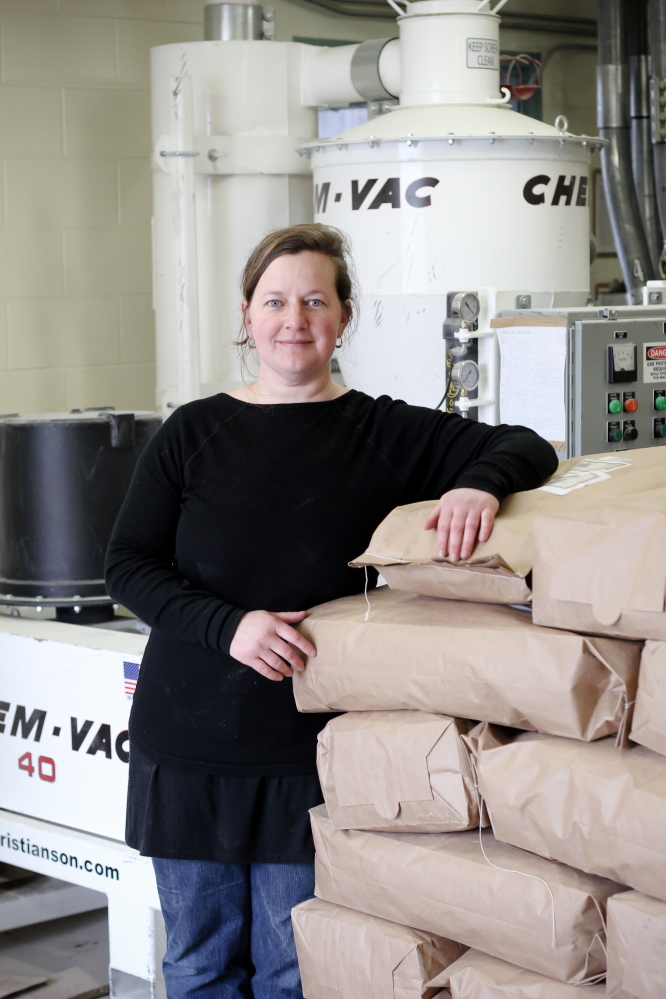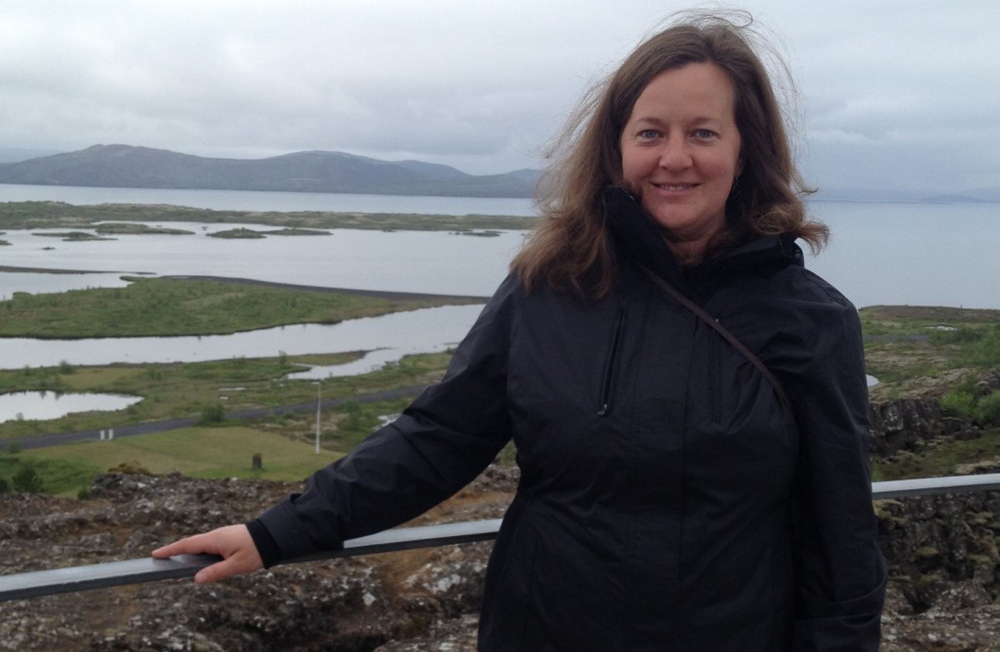Amber Lambke, 39, is a speech pathologist by training, but her life changed in 2007 when she joined forces with Albie Barden, a friend and local mason, to form the Maine Grain Alliance and gather Maine bakers together for “The Kneading Conference.” The project started out as a way to revitalize Skowhegan but has grown into an annual event that attracts bakers from all over the country and has seeded interest in growing heritage grains in Maine, spun off related local businesses (a grist mill, a café) and forged strong connections between Skowhegan residents and local farmers. This year’s conference will be held Friday and Saturday and is followed by an artisan bread fair the next day.
SUCCESS STORY: The conference now draws 250 people a year, including professional and home bakers, chefs, oven builders, millers, farmers experimenting with growing local grains, and people with an interest in sustainable agriculture. The day after, as many as 3,000 people swarm the artisan bread fair, which is open to the public. “When we planned the first one, we weren’t certain that it could be an annual event. In fact, we had people cautioning us against making it an annual event, that maybe there wasn’t that much interest,” Lambke said. But interest is “growing and growing.”
THIS YEAR’S HIGHLIGHTS: Keynote speaker Maria Speck, author of “Ancient Grains for Modern Meals,” will talk about using special varieties – einkorn, emmer, spelt – to make everyday meals. Celebrated bread baker Peter Reinhart will tackle sprouted grain flours. Trine Hahnemann will talk about her love of rye. “She orchestrated something called the Rye Bread Project in New York City, trying to educate bakers and chefs about the value of rye,” Lambke said. “Rye has a lower carbohydrate profile, and it’s also one of those grains that thrives in rougher soils, so it grows well in New England.” The conference will also showcase Maine’s own Acadian buckwheat pancakes.
MAINE GRAINS: Lambke, who founded the two-year-old Somerset Grist Mill with baker Michael Scholz, is hopeful the mill will break even this year. Maine Grains primarily produces stoneground wheat, rye and rolled oats for sale throughout New England. The types of grains and the number of farmers the business works with is ever expanding, Lambke said.
DOES SHE LIKE TO BAKE? “I bake at home for fun and to understand the products, and because I appreciate a good sourdough loaf of bread,” Lambke said. “My skills are getting better, but really my business partner in the mill is the true baker.”
A GRAIN THAT BLEW HER AWAY: A “sweet, nutty” heritage variety called red fife, which adds “exceptional flavor and color” to bread. It’s become popular in Canada in the last 20 years, so Maine farmers can now buy seed from Canadian farmers. “It’s one of those leading varieties that is going to transform the way we buy and understand flour,” Lambke said. “Up until recently, we just bought flour as a medium (for) baking. But I think wheats will start to become known for their own unique flavors and colors and profiles as more varieties like this become popular.”
OATS – NOT JUST FOR BREAKFAST: “We are dry rolling the oats as opposed to steam rolling, which is what most of the industry does in order to extend shelf life,” Lambke said. “When you steam and roll and dry the oat back out, you’re basically stabilizing the fats and lipids in the oats so that they’re shelf stable, but you may be compromising flavor and nutrition. We are accepting a shorter shelf life in exchange for freshness, which I think customers are recognizing. We get rave reviews about our rolled oats being very creamy and naturally sweet. We have chefs that are using them as a side dish to serve with butter, salt and pepper.”
SAGA OF ICELAND: Lambke traveled there last month as part of a trade mission from Maine. She was looking for new markets for Maine grains but her interest was more than professional. She and her twin sister were born in Iceland, when her father was in the U.S. Navy and stationed on a NATO base there. “It’s absolutely gorgeous. Very few trees – in stark contrast to Maine, where you’ve got trees everywhere – but a breathtaking landscape that is both harsh on the one hand, where you’ve got volcanoes and lava rock, but lush on the other hand, where you have these valleys that are quite fertile where things grow.”
WHAT ICELAND WANTS FROM MAINE: “Due to a short growing season and a cooler climate, they’re accustomed to importing much of their food needs. And the grain grown in Iceland is mostly limited to barley and oats, primarily for livestock. What I heard over there was a growing interest in chemical-free production of foods, so organic or at least natural, and absolutely GMO-free.”
ROAD TRIP: Lambke, her husband (a family doctor in Skowhegan), her 9-year-old daughter and her 11-year-old son recently drove the Maine Grain Alliance’s mobile, wood-fired oven to an agricultural festival in Aroostook County to serve the crowd wood-fired pizzas. “Many of these folks up in Aroostook County said they had never tried wood-fired pizza before, and that it was the best (pizza) they’d ever had. The dough had Aroostook wheat in it, which many of them hadn’t ever tried.”
WHAT’S NEXT? Maine Grains are already selling well at the Whole Foods Store in Portland. Now the company’s production bakery in Medford, Massachusetts, has “bought 10 tons of this heritage red fife to incorporate into a new baguette that they are turning out into northeastern Whole Foods retail bakeries, so that was a great accomplishment and also a pioneering step for Whole Foods,” Lambke said. “And as we speak, we’re orchestrating a roll-out to other Whole Foods retail stores in Massachusetts, Connecticut, Rhode Island, New Hampshire and New York.” Maine Grains may also appear soon in stores in Rhode Island and New York City. “We’re only scratching the surface,” she said. “We’ve had some excellent success stories with bakeries and folks that are using our grains, but we’re expanding our distribution reach all the time.”
Send questions/comments to the editors.




